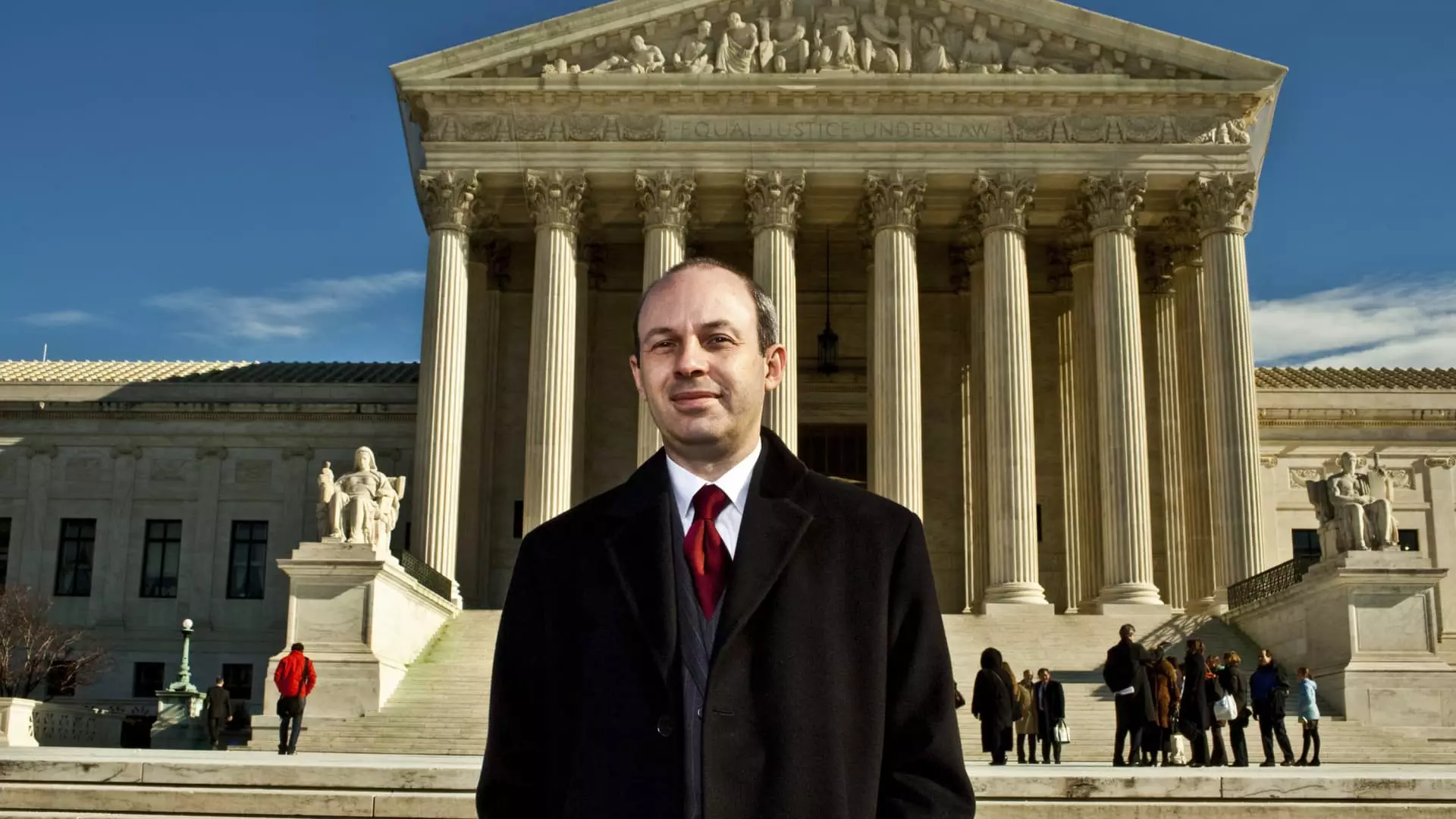The recent legal troubles faced by Tom Goldstein, a prominent Supreme Court attorney and publisher of SCOTUSblog, reveal a dramatic intersection between the high-stakes world of legal expertise, the ever-evolving landscape of cryptocurrency, and the intricacies of the American legal system. While Goldstein has previously built a name for himself through his compelling advocacy and expertise before the Supreme Court, his current predicament has shifted the narrative significantly, raising critical discussions around legal accountability, financial transparency, and flight risk in criminal cases.
Goldstein’s legal challenges originate from his indictment on serious charges of tax evasion that contain allegations of profound financial misconduct. Prosecutors assert that he has failed to accurately report significant gambling earnings, reportedly exceeding $5 million. This deceit is compounded by claims that he utilized funds from his law firm to cover personal gambling debts. Such allegations not only portray a picture of financial irresponsibility but also challenge the integrity of Goldstein’s professional standing. As a seasoned attorney, Goldstein is expected to adhere to rigorous ethical and legal standards. Thus, his alleged violations serve as a stark reminder of the potential pitfalls even accomplished professionals may encounter.
At the heart of the ongoing legal saga lies the notion of flight risk. Following his indictment, prosecutors raised alarms about Goldstein’s behavior, particularly his unauthorized transfer of funds from two cryptocurrency wallets. Segregating himself from these accounts during bail hearings, Goldstein’s denials do little to quell concerns raised by federal authorities. Prosecutors emphasized that with over $8 million received just prior to the hearings, Goldstein’s rapid financial activities represented clear defiance of legal scrutiny. This significant movement of cryptocurrency, particularly following explicit restrictions imposed by a judge, casts doubts on his willingness to adhere to legal obligations while navigating the case against him.
The implications of Goldstein’s transactions extend beyond mere financial irregularities. By purportedly offering “things of value,” including cryptocurrency, to potential witnesses, he raises substantial ethical and legal questions around witness tampering—a serious infraction that could amplify his troubles exponentially. Prosecutors have flagged these concerns as an indication of attempts to manipulate the understanding and testimony of individuals connected to his case, which, if proven, could lead to additional charges.
In a decisive move, Chief Magistrate Judge Timothy Sullivan ruled against Goldstein, ordering his arrest and detention without bail. The judge pointed to “clear and convincing evidence” of multiple violations of release conditions, underscoring the perceived risk of flight. Sullivan’s ruling elucidates a critical aspect of the judicial process: the balance between pretrial liberty and the necessity of maintaining public safety and preserving the integrity of judicial proceedings. This balance becomes all the more delicate in cases involving individuals with access to significant financial resources, as in Goldstein’s circumstance.
The ruling emphasizes not only concerns surrounding Goldstein’s potential evasion of justice but also highlights the court’s unwavering determination to uphold the law against perceived threats. By taking such a strong stance, the court underscores a precedent that those in positions of power and influence are not immune from accountability.
As Goldstein’s case unfolds, it beckons deeper reflections within legal circles and society at large on the ethical ramifications of financial dealings, legal representation, and accountability. The dynamics of financial conduct—empowered by new technologies like cryptocurrency—introduce complexities that challenge traditional views of legality, morality, and responsibility. Goldstein’s experiences serve as a cautionary tale, illustrating how the interplay of professional ambition and personal indiscretion can not only tarnish reputations but also undermine the very essence of justice.
Tom Goldstein’s ongoing legal challenges portray a nexus of intrigue and ethical dilemmas that compel scrutiny not only of one individual but of the broader ramifications for the legal community. As the story develops, it will undoubtedly ignite conversations about ethical practices, financial transparency, and the consequences of one’s actions, regardless of their professional background.

Leave a Reply